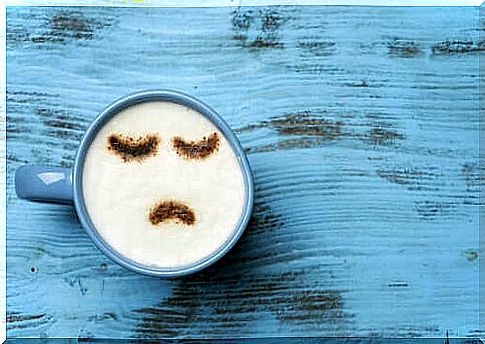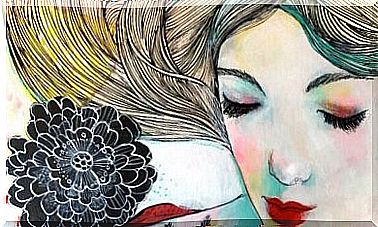Blue Monday: The Saddest Day Of The Year?

Blue Monday or “sad Monday” is the name given, for some years, to the third Monday of the year. According to psychologist Cliff Arnall, this is the saddest day of the year. He set this date because, after the excesses of Christmas, many families do not recover financially and emotionally.
Also, it seems that, little by little, we realized that the New Year’s resolutions weren’t so realistic, or at least that they weren’t so easy to fulfill. At this point we already realized that the promises we had made to start the year are impossible or distant, so we feel disappointed.
Well, is it true that there is the saddest day of the year? Are we even sadder on the third Monday in January? We will see below.

origin of sad monday
As mentioned, it was psychologist Cliff Arnall, a researcher at Cardiff University (UK), who coined the term Blue Monday, or sad Monday.
In 2005, Arnall created a formula to determine which was the worst day of the year because of an advertising campaign for the Sky Travel agency.
The proposed formula was as follows:
- “C” is the weather factor.
- “D” are debts acquired during the holidays.
- “d” is the amount of debt that will be collected at the end of January.
- “T” is the time since Christmas.
- “I” refers to the period since the last failed attempt to quit a bad habit, such as quitting smoking or getting out of a sedentary lifestyle.
- “M” are the motivations that remain.
- “NA” is the need to act to change your life.
Taking all these factors into consideration, Cliff Arnall concluded that the saddest day of the year is the third Monday in January.
So is there sad Monday?
The result of the mathematical formula, which resulted in Blue Monday, has been much questioned. Still, it can be said that Blue Monday is a fact every year.
Social networks are full of motivating messages to face this “so depressing” day. Even the media share this information and some brands take advantage of this day to offer discounts in order to encourage consumers.
Even if all these feelings are shared, it is unlikely that the entire population can be depressed at the same time every year.
The Blue Monday theory offers a concept of happiness reduced to a few factors and generalizes too much, as it assumes that all people are equally impacted by these factors.
For example, in January we may have less money and can’t travel, but maybe we’re craving a little routine after the Christmas holidays. In fact, the creator of this day must have thought of something similar, since Arnall himself later admitted that his formula made no sense.

Dangers of Blue Monday
Blue Monday has become a classic, and it’s almost impossible not to hear the concept during that day, see a news story on television or a comment on social media.
Therefore, it can happen that people feel bad almost by imposition. We may have a typical Monday like any other of the year, with its difficulties and joys, but constantly hearing that it is a sad day can leave us conditioned or predisposed to look at the negative things that happen during the day.
It’s important not to try to pursue happiness all the time. In recent years, coaches, television, social networks, etc., have imposed a mandatory model of happiness. However, this is impossible, as well as doing harm.
It is necessary to allow yourself to be sad when necessary. In fact, at times this is the only way to heal certain wounds.
As we explained earlier, it is important to try to take this Monday in the best possible way and to relativize any unforeseen events that may arise. Also, the following tips can help us not just for that day, but for every day of the year.
- Bedtime: Try to sleep 8 hours a day. By maintaining good quality sleep, you will feel more uplifted during the next day and will face the difficulties that can come with a positive attitude.
- Exercise: Exercise at least twice a week. Physical activity reduces anxiety and increases self-esteem.
- Diet: take care of what you eat. Maintaining a balanced diet directly benefits your well-being. In addition, over-the-top dinners, alcohol and caffeine can promote insomnia.
- Friendships: cultivate your social network, talk to your friends, care about them, be nice to your co-workers, neighbors, etc.
- Assertiveness: is the ability to express what we want, give opinion and show respect for others and for ourselves. If you’re assertive, you’ll say what you feel like doing and ignore answers you don’t like, which will improve your mood.
- Enjoyable Activities: The basis of the mood is enjoyable activities. It’s been proven that if you do what you love, your mood at the end of the day will be more satisfying, compared to those days that are more routine. Therefore, it is recommended to set aside time every day to do what you like, such as listening to music on the way to work, reading a little before bed, going for a walk, having coffee with a friend, etc.








